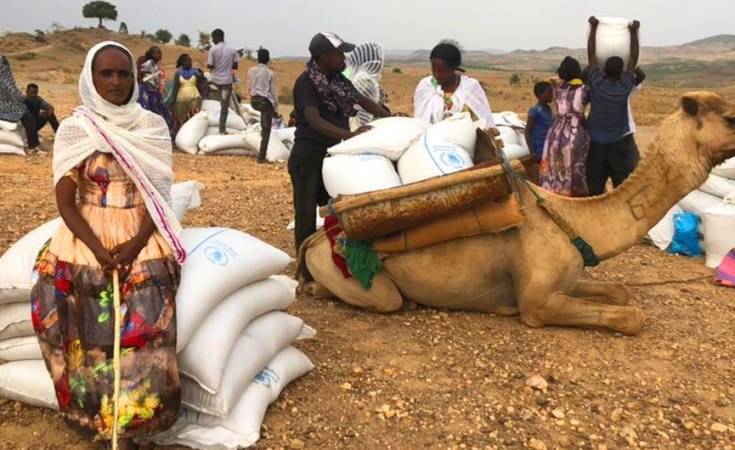Addis Ababa — In a recently released outlook report, the Famine Early Warning Systems Network (FEWS NET), a prominent authority on acute food insecurity, has issued a stark warning regarding Ethiopia's worsening predicament.
The Network projects a dire escalation in the country's food insecurity challenges, with a staggering four million individuals at risk of plunging into emergency hunger conditions. This distressing situation is expected to plague five regions of Ethiopia well into mid-2024, emphasizing the urgent need for immediate intervention.
According to the report, specific areas in southern and southeastern Ethiopia, especially pastoral regions, have faced considerable difficulties worsened by the drought from 2020 to 2023. In the Borena Zone of Oromia and certain parts of the Somali Region, over 20% of the population consists of households either displaced or destitute with limited livestock.
These households will heavily depend on food assistance and resort to begging until early 2024 to meet their needs. Additionally, the report highlights the occurrence of flash floods during the rainy season (October to December), which further poses risks of additional displacement and asset loss.
The report highlights the presence of emergency conditions in the northern regions of Amhara and western Afar. This situation arises from the ongoing conflict in northeastern Amhara, which has resulted in restricted trade activities and a significant increase in food prices.
Moreover, certain areas of Wag Himra and North Gondar Zones have faced crop failures due to inadequate rainfall between June and September. The network anticipates that these regions will persist in facing emergency situations until at least May 2024.
According to a recent report by Addis Standard, the Sahala District in Waghemra Zone has been heavily impacted by drought, leading to the tragic loss of six lives. This unfortunate incident has been compounded by ongoing conflicts, which have severely hampered access to crucial resources. Approximately 180,000 individuals living in 26 administrative units are presently confronted with the imminent risk of starvation.
While there might be a short-term improvement related to ongoing harvests in Tigray, the report warns that food security is expected to worsen again starting in early 2024, as the supplies from these harvests are exhausted.
The report emphasizes that households are likely to encounter difficulties in accessing food from markets due to trade restrictions and limited incomes. Moreover, it highlights that the substantial requirements in Tigray and other northern regions are anticipated to continuously increase until mid-2024.
Based on a November report by Addis Standard, the drought in Tigray's Abergelle Yechila and Atsbi districts has resulted in the unfortunate loss of 190 lives. Additionally, a survey indicated that 83 individuals have perished, with an extra 297 people in critical condition. The report also highlighted that over 95,000 individuals are currently at high risk and require urgent assistance.
The report emphasizes that there may be a surge in the need for aid in multiple hotspot regions during the upcoming lean season, spanning from June to September 2024, unless there is an augmentation in recovery assistance and humanitarian aid. It underscores the critical and persistent nature of the crisis impacting millions of vulnerable Ethiopians across different regions.
The Network recommends that humanitarian organizations strategize for an ongoing response until mid-2024 to mitigate the worsening consequences of food insecurity.


